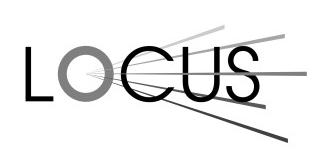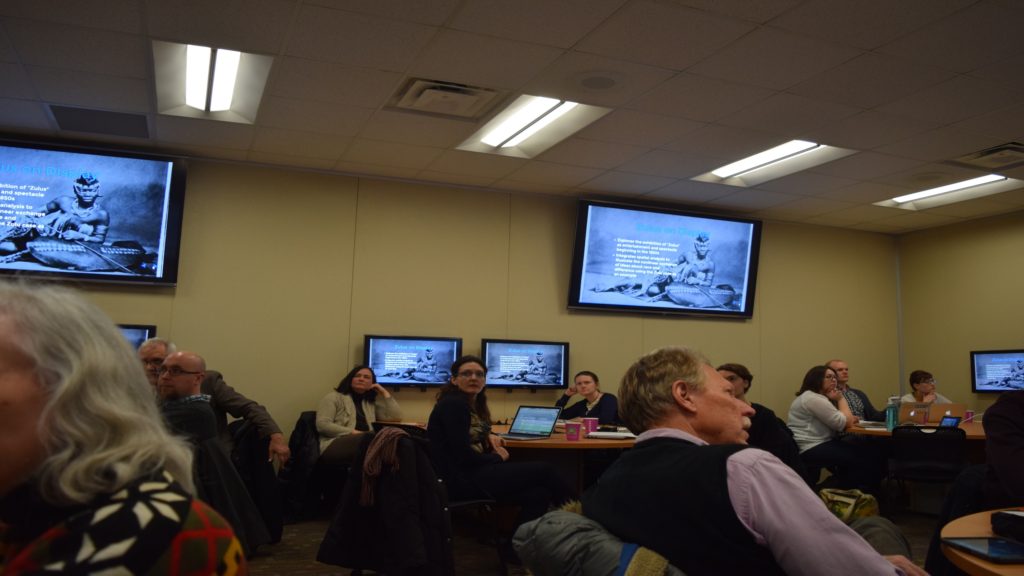cross-posted at Digital Humanities @ MSU
Over the past year, a group of Digital Humanists from the Libraries, College of Arts and Letters, and LEADR have banded together to ramp up Digital Humanities programming on campus. A core component of this effort has consisted of a Digital Humanities Workshop Series that has covered a wide range of topics like geographic information systems, Omeka, Python, network analysis, data preparation for DH projects, and Humanities Data Curation. Workshop attendees have come from across campus: English, German, Geography, History, Matrix, Agriculture, Food and Resource Economics, Media and Information, Teacher Education, Writing Rhetoric and American Cultures, Neuroscience, the College of Arts and Letters, the MSU Museum, Anthropology, African American and African Studies, MSU Libraries, and Integrative Studies in the Arts and Humanities. While we continue to believe in the value of the workshop series for its role in providing initial exposure to a given topic, we wanted to create another type of opportunity that focuses explicitly on the connection between methods and tools commonly used in the Digital Humanities and the types of (inter)disciplinary research questions they can be applied to. Thus, LOCUS was born.
LOCUS is designed to be a low barrier opportunity for faculty, staff, and students to share research with an (inter)disciplinary community. A LOCUS CFP solicits 7-10 minute talks and places emphasis on use of a digital method or tool in the context of a specific research question and/or pedagogical application. LOCUS themes are intentionally quite broad (e.g. spatial analysis, text analysis) so as to draw the widest possible audience. For each LOCUS we also try to have at least two Departmental/Program partners to help with crafting the CFP and promoting the opportunity. Partners ideally come from different colleges (e.g. College of Arts and Letters and College of Social Science). We do all of the above to bring scholars into contact with each other, where daily departmental life might not afford the opportunity. On February 25 the first LOCUS launched – “Spatial Analysis in Humanities and Social Science“.
Presentations were delivered by faculty, graduate students, and undergraduate students from German Studies, History, and Anthropology. Topics ranged from the creation of a mobile app to surface indigenous histories in Toronto to real-time geospatial mapping of Twitter activity in Kenya. Recordings for most of the presentations are now available. With respect to attendees we almost reached room capacity with folks filling seats from German Studies, History, WRAC, Geography, Anthropology, English, and the Libraries.
Moving forward we aim to have at least two LOCUS events per semester. The final LOCUS of the Spring 2015 semester, “Text Analysis in Humanities and Social Science“, will take place April 9, and is made possible via partnership with Writing Rhetoric and American Cultures, Political Science, and the Social Science Data Analytic Initiative. Please consider a submission, share widely, and think about attending (register early as space is limited)!

